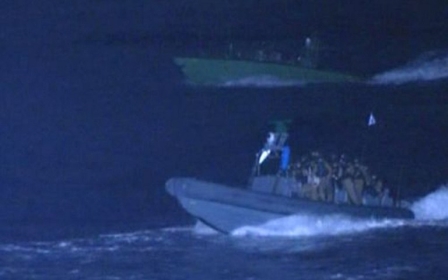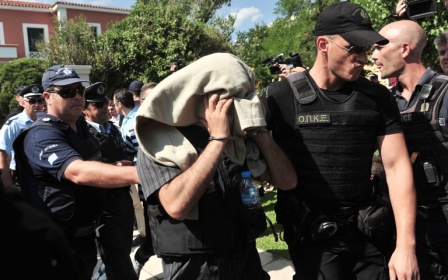Turkish jets hit 39 Islamic State targets, kill four militants
Turkish warplanes destroyed 39 Islamic State targets and killed four militants in northern Syria, the Turkish army said on Saturday.
Turkey's ramping up of its air strikes in northern Syria is part of Ankara's almost four-month-old "Euphrates Shield" operation with Turkish-backed rebels, which aims to push the militants and Kurdish militia fighters away from the Syrian border area.
Turkish jets destroyed shelters, vehicles mounted with guns, and ammunition depots in the latest air strikes on the al-Bab and Zarzur regions of northern Syria, the army said.
The Turkish army on Friday said its air strikes destroyed 34 Islamic State targets, while a statement from the day before said it said it had hit 10 targets.
Foreign Minister Mevlut Cavusoglu said on Friday the Turkish-backed rebels closed in on the key Islamic State-held city of al-Bab in northern Syria, with Turkish tanks and warplanes supporting the assault.
Hundreds of Arab and Turkmen fighters seized at least two villages west of al-Bab, the rebels said on Friday. The city is of strategic importance to Turkey, partly because Kurdish-dominated militias have also been trying to take it from IS.
The advance of the Turkish-backed forces potentially pits them against both Kurdish fighters and Syrian government forces in an increasingly complex battlefield.
Ankara is determined to prevent the Kurdish YPG militia, which it sees as a hostile force, from joining up cantons it controls along the Turkish border, fearing that would embolden Kurdish separatism at home.
Stay informed with MEE's newsletters
Sign up to get the latest alerts, insights and analysis, starting with Turkey Unpacked
Middle East Eye delivers independent and unrivalled coverage and analysis of the Middle East, North Africa and beyond. To learn more about republishing this content and the associated fees, please fill out this form. More about MEE can be found here.




